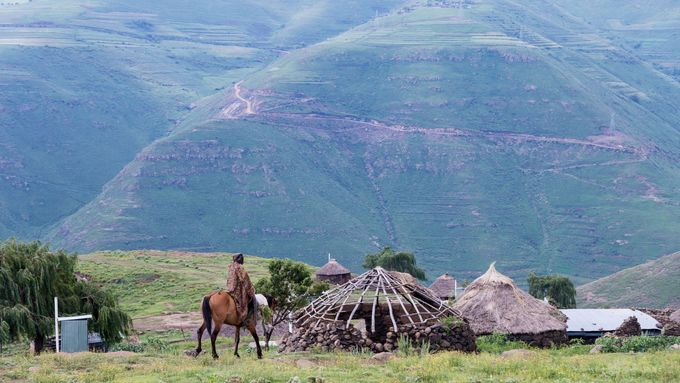Global Action Required to Tackle Pandemic-Induced Hunger and Poverty
05.02.2021
The onset of the COVID-19 pandemic caused a sharp decline in living standards and rising food insecurity in low- and middle-income countries across the globe, according to a new study by an international team of economists including from Swiss TPH. The study, published today in the journal Science Advances, provides novel insights into the collateral damage of the pandemic, and urges the international community to take action to mitigate the impact on hunger and poverty.

COVID-19 and its economic shock present a stark threat to residents of LMICs who lack the social safety nets that exist in rich countries. (Photo credit: Swiss TPH)
As the COVID-19 pandemic crossed the threshold of two million lives lost, the world remains at a precipice: though vaccinations are underway, the virus continues its spread, including new mutations. The economic impact of this crisis on the most marginalised populations around the world is particularly devastating.
In a study published today in the journal Science Advances, an international team of economists, including from Swiss TPH, provided an in-depth view of the socioeconomic impact of COVID-19 in low- and middle-income countries, using detailed micro data collected from tens of thousands of households in low- and middle-income countries (LMICs).
"We interviewed over 30,000 people in Asia, Africa, and Latin America, and discovered widespread drops in employment and income and increases in food insecurity," said Günther Fink, an economist and public health specialist at Swiss TPH. "48% of rural Kenyan households, 69% of agricultural households in Bangladesh and 87% of rural households in Sierra Leone reported being forced to miss meals or to reduce portion sizes during the pandemic."
Dire economic consequences
COVID-19 and its economic shock present a stark threat to residents of LMICs - where most of the world's population resides - who lack the social safety nets that exist in rich countries. The evidence presented in this paper shows dire economic consequences, including rising food insecurity and falling income, which could thrust millions of vulnerable households into poverty.
The study shows that in addition to increasing food insecurity, the pandemic and accompanying containment measures have undermined several other aspects of household well-being and reduced access to health services. In addition, schools in all sample countries were closed during most or all of the survey period.
Global action needed
Even though the world has witnessed the power of science and industry in developing and approving new vaccines in less than a year, much of the Global South will have to wait much longer before their populations will have access to the vaccines. "In the meantime, families in low-income settings will seriously struggle with extreme poverty and hunger," said Fink.
Drawing on decades of rigorous evidence, the authors urge the international community, including governments, funders and multilateral organisations to take action to mitigate the crises of hunger and poverty. This action would include addressing immediate poverty and hunger by deepening investment in cash assistance and food security, and prioritising recovery strategies that address the protracted nature of the crisis.
By centring efforts on substantial continued economic support together with fair and equitable vaccine distribution, the international community can lay the groundwork for long-term recovery. Insufficient action now will delay this and widen the inequality gap.
Partner institutions
The paper was written in collaboration with the following institutions: University of California, Berkeley, The World Bank, University of California, Davis, Northwestern University, Yale University, University of Basel, Swiss Tropical and Public Health Institute, Princeton University, Busara Center for Behavioral Economics, Stanford University, WZB Berlin Social Science Center, Columbia University, London School of Economics and Political Science, Vyxer Remit Kenya, American University, University of Goettingen, Harvard University, and Wageningen University.

Günther Fink
Prof. Dr.
Head of Unit
+41612848354
,
**
guenther.fink@swisstph.ch
Stay connected
Subscribe to our newsletter and get all the latest research news, project updates, course and event listings from Swiss TPH.